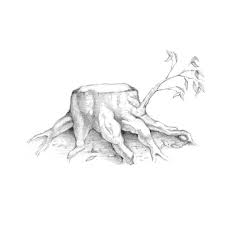Why daughters?
And why over the wall?
You can go deeper, you know?
Verse (in Hebrew):
יוסף בֶּן־פֶּרֶת בּוֹעַת עַיִן בְּעַל־שׁוֹר בְּנֹתָיו רָהֲבוּ עַל־הַגָּבֶל
(Joseph is a fruitful bough, a fruitful bough by a well; his daughters run over the wall)
יוסף (Yosef) - Noun:
Form: Proper noun, masculine singular.
Meaning: Joseph.
Role: Subject of the sentence.
Grammatical Note: Joseph, the eleventh son of Jacob, is often portrayed as the favorite son and a model of God's providence. The name "Joseph" itself means "May He Add," reflecting his role as a key figure in the story of Israel’s preservation.
בֶּן (ben) - Noun:
Form: Noun, masculine singular.
Meaning: Son.
Role: Noun (subject of the phrase).
Grammatical Note: The word "ben" literally means "son" and can refer to a male child or offspring. Here, it indicates Joseph as the "son" of Israel, and the word serves as an integral part of the title "Joseph, the son" in the poetic blessing.
פֶּרֶת (peret) - Noun:
Form: Noun, feminine singular.
Meaning: A fruitful branch, or a bough.
Role: Subject complement in the nominative case, describing Joseph's attributes.
Grammatical Note: The term "peret" refers to a branch or a bough, particularly one that is fruitful. This term is key in understanding the idea of Joseph being a prolific and productive figure. The use of "peret" here has the connotation of abundance and God's favor.
בּוֹעַת (bo'at) - Verb (participle, active):
Form: Verb, Qal participle (active voice), feminine singular.
Meaning: Being fruitful, bearing fruit.
Role: Modifies "peret" (fruitful bough), signifying ongoing action.
Grammatical Note: The participle "bo'at" conveys continuous action. It indicates that Joseph’s fruitfulness is not a one-time event but an ongoing characteristic of his life, signifying sustained blessing from God. The tense used here reflects the constant state of fruitfulness attributed to Joseph.
עַיִן (ayin) - Noun:
Form: Noun, feminine singular.
Meaning: Well, spring, fountain.
Role: Prepositional phrase “by a well.”
Grammatical Note: "Ayin" commonly refers to a spring or well, symbolizing a life-giving source of water. In a theological context, wells are often seen as sources of sustenance and blessing, just as Joseph is presented as a source of life for his family and the nation of Israel.
בְּעַל (be'al) - Preposition:
Form: Preposition.
Meaning: By, near, with.
Role: Part of the phrase “by a well,” describing the proximity or position.
Grammatical Note: The preposition "be’al" means "by" or "near" and suggests that Joseph’s fruitful bough is positioned next to a well, further symbolizing how his prosperity is deeply rooted and sustained by divine favor.
שׁוֹר (shor) - Noun:
Form: Noun, masculine singular.
Meaning: Wall, barricade.
Role: Object of the preposition "by."
Grammatical Note: The word "shor" here is translated as "wall" or "barricade," which can refer to an obstacle, a boundary, or a barrier. It is used metaphorically to describe a limit or boundary that Joseph’s descendants (or his fruitfulness) will transcend. This is a powerful image of overcoming obstacles.
בְּנֹתָיו (b'notav) - Noun:
Form: Noun, feminine plural.
Meaning: His daughters (in the sense of branches, or offspring).
Role: Subject complement.
Grammatical Note:
"B'notav" (his daughters) comes from the root "bat" (daughter) and uses a possessive suffix ("-av," meaning "his").
While "branches" is the literal translation, the use of "daughters" here conveys the metaphorical extension of Joseph's fruitfulness. It reflects the multiplication of his lineage and influence beyond his direct descendants, akin to daughters spreading or reaching beyond traditional boundaries.
רָהֲבוּ (rah'bu) - Verb (perfect tense):
Form: Verb, Qal perfect 3rd plural.
Meaning: They run over, spread.
Role: Describes the action of the daughters (or branches) as they spread.
Grammatical Note: The verb "rah'bu" is in
the perfect tense, signifying a completed action with ongoing implications. The use of the perfect tense suggests the branches have already spread, but the effects of this spreading continue. It emphasizes the expansive nature of Joseph's blessings and influence.
עַל (al) - Preposition:
Form: Preposition.
Meaning: Over, upon.
Role: Expresses the direction of the verb "run over," denoting the movement of the daughters (branches).
Grammatical Note: The preposition "al" indicates that the spreading or overflowing of the branches goes beyond boundaries, signifying Joseph’s prosperity and influence going past traditional limits.
הַגָּבֶל (hag'bel) - Noun:
Form: Noun, masculine singular.
Meaning: The wall, barrier.
Role: Object of the preposition "al" (over the wall).
Grammatical Note: The "gavel" (wall) again suggests boundaries or limits. It can be understood metaphorically as limits or obstacles that Joseph’s fruitfulness will exceed, signifying the transcendence of his blessings.
Interpretation:
Joseph as a Fruitful Bough: The metaphor of Joseph as a "fruitful bough" in Hebrew connects his character to abundance, growth, and prosperity. The verb בּוֹעַת (bo'at) in the participial form emphasizes an ongoing, active state of fruitfulness, not a momentary event. This is a blessing indicating that Joseph’s legacy is continuously fruitful.
Spiritual and Physical Blessing: The עַיִן (ayin) as "well" links the prosperity of Joseph to a life-giving source, emphasizing that his success and influence are sustained by divine intervention and providence.
Overcoming Boundaries: The verb רָהֲבוּ (rah'bu) implies that Joseph’s prosperity does not stop at natural boundaries or cultural walls, but extends beyond them. The use of בְּנֹתָיו (b'notav - daughters) further develops this idea of expansion beyond immediate family, highlighting a broader, collective growth.
Gender and Symbolism of "Daughters": The use of בְּנֹתָיו (b'notav) to denote "branches" (or "daughters") is an interesting linguistic and metaphorical choice.
In Hebrew, בַּת (bat) typically means daughter, but here it symbolizes the offspring of Joseph, possibly as figurative branches of a vine, which reflects both spiritual and physical multiplication.
Theological Significance--
Divine Fruitfulness: Joseph's blessings in this passage are deeply tied to God’s covenant with Abraham, Isaac, and Jacob, reflecting not only physical abundance but spiritual fruitfulness as well.
Expansion of God’s Kingdom: The extension of Joseph’s "branches" beyond the wall reflects the idea that God's blessings are not confined to Israel alone but will extend beyond its borders, foreshadowing the spread of God's kingdom and the eventual
inclusion of the Gentiles.
[Jesus was that “beautiful and glorious branch,” which was in due time to spring from the stem of Jesse [Note: Isa_4:2; Isa_11:1.], the fruit whereof was to fill the whole earth [Note: Isa_27:6.]. It was not one tribe only, or two, that was to acknowledge him as their head, but all the tribes; yea, Gentiles as well as Jews, even all the ends of the earth: his fruit was to shake like the woods of Lebanon, and they, who should spring from him, were to be numerous as the piles of grass [Note: Psa_72:16.], the stars of heaven [Note: Gen_15:5.], and the sands upon the sea-shore [Note: Gen_22:17.]. And so abundantly has this prediction been already verified, that we may say of this Branch as the Psalmist did of that which typically represented it, “It has taken deep root, and filled the land: the hills are covered with the shadow of it, and the boughs thereof are like the goodly cedars; it has sent forth its boughs unto the sea, and its branches unto the river [Note: Psa_80:9-11.].”]
Gen_49:22 There is a word play and a metaphor in this verse.
1. the Qal ACTIVE PARTICIPLE, BDB 826, KB 963, is repeated twice
2. in line 1 "bough" is literally "son," but in line 3 "bough" is "daughter"
These are agricultural metaphors for a vigorous growing and fruitful plant (cf. Deu_33:13-16).
Some commentators are doubtful of a switch from animal metaphors (cf. Gen_49:9; Gen_49:14; Gen_49:17; Gen_49:21; Gen_49:27, and the parallel in Deu_33:17) and change the imagery to a wild donkey on a hillside (cf. JPSOA, TEV). Poetry in an ancient language using rare words is a slippery thing!
Gen_49:22 has many questions with the Hebrew text!
--before I get slam dunked again.
J.





